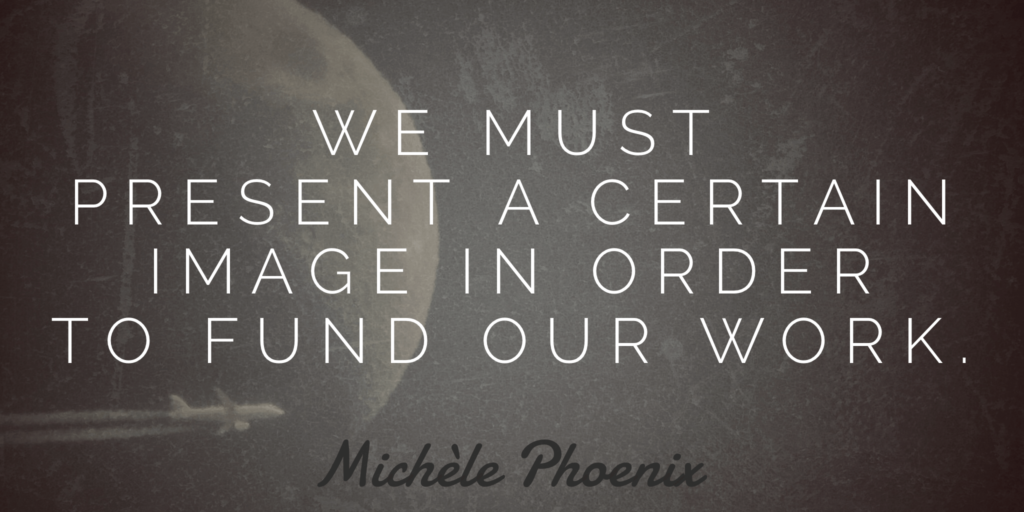
Hypocrisy is a topic we don’t like to address in the missionary community—perhaps because of the unspoken reality that a little bit of deception has sometimes proven to be good for ministry. (I’m not condoning it, just acknowledging it.) But where does “putting your best foot forward” end and “misrepresenting yourself” begin?
The line is blurred in this world where personal relationships are often financial partnerships too.
If there’s one chapter of ministry that blurs the line even more, it’s HMA.
HMA (Home Ministry Assignment) is a necessary endeavor. It’s a chance for missionaries and their children to reconnect with their passport culture, to visit family and friends they haven’t seen in a while and to check in with churches and individuals who support their work.

Unfortunately, without careful management and execution, HMA can also teach observant children some unintentional lessons about “relative” honesty and incomplete disclosure.
We MKs learn the tricks of the trade by watching our parents. We see them responding with a polite smile to people making comments they fiercely disagree with. We see them being more friendly with potential donors than they’d be with the grocer or a relative. We see them saying eloquent prayers in public that they’d never utter at home. We see them laughing with too much vigor or accepting offense with too much humility—all in what we assume is an attempt to keep everyone happy…and generous.
Note: I don’t think most people set out to misrepresent who they are or what they think. It’s just one of the ways things can go off-track if we let the approval of others or fundraising mandates become the driving force of our HMA efforts.

Many MKs develop a flawed Philosophy of Furlough at an early age:
- If supporters like us, they’ll support us.
- If they don’t like us, they’ll stop supporting us.
- If they stop supporting us, we’ll have to leave the field and Life-As-We-Know-It will come to an end.
And because a common MK trait is taking on the burdens of our world, we assume that the survival of Life-As-We-Know-It depends in great part on us. So we enter into the HMA experience feeling the pressure to influence the outcome, even if that means being something other than our true selves.
We try our hardest to be cute, winsome, talented, polite and well-behaved. We’ll eat the mushrooms we hate so as not to offend our hosts. We’ll recite John 3:16 in four languages any time we’re asked. We’ll do it all because we’re pretty sure we’re the persuasive props brought along for that purpose.
We live out the cynical premise that performance plus schmoozing equals getting to return home at the end of HMA.

Living in that distorted truth can be debilitating.
When I was sixteen, I sat in a service with my parents after a pre-church morning that had bristled with marital tension. I listened to my dad giving a heartfelt sermon while my mom still fumed in the pew beside me. I braced myself to sing the song that, in my mind, was supposed to “seal the deal” and ensure continued support. The responsibility was an anvil in my stomach as I got up to sing “There is a Savior” with sweet, practiced conviction. A couple ladies pulled out their Kleenexes as I finished and I felt a thrill of victory. My parents got up to make a final statement, standing close and smiling. The church applauded. Successful performance. Life-As-I-Knew-It had been preserved.
So wrong. So un-Christlike.
This mode of influence can be easily normalized in any field where image yields profit. In ministry, however, it takes on spiritual overtones…as if God Himself required it of us. When hypocrisy is attributed to God’s demands for the sake of his work, it becomes even more sinister and destructive.
Marriage trouble? Don’t ever mention it. Missionary discord? Never refer to it. Ministry discouragement and attrition? Not something we discuss. Problems with lust, money-mismanagement, unethical behaviors? Nobody needs to know. Why? Because even we have bought into the myth that ministry requires that we present a certain image in order to fund our work.

The repercussions of this perspective on honesty and truth can be far-reaching. If MKs have spent their childhood observing relationships in which approval (and its payoff) is obtained through something that looks like insincerity—or at the very least, careful image management—should we not be concerned about the honesty they’ll bring to the rest of their relationships? How will they find the courage and confidence to risk showing their flaws? And who will they lose to their inability to do so?
In my work with Missionaries’ Kids, I’ve encountered far too many who return to their passport culture to live long-term, believing that relationships will only be achieved through the same kind of selective self-revelation they saw in their parents on HMA. It’s a subconscious tendency that can lead to relational failure.
Early exposure to hypocrisy can affect our ability to be real with ourselves too.
We so keenly feel the pressure to live up to the expectations of others that some of us resort to hiding behind strategically crafted masks, berating ourselves when we let them slip.
We become fierce in our fakeness. Fearful too. And the habit can get so ingrained that we’re not even aware we’re living according to a destructive mandate to be something other than ourselves. It can prevent us from seeking help, maturing and finding an identity born of integrity.
At its worst, our hypocrisy—even just perceived hypocrisy—can eventually cause MKs to dismiss God, Christians and faith itself. When the God of Truth is represented by envoys who rely on untruth to “get the job done,” it can cause a destabilizing disconnect that skews one’s outlook on all spiritual things. I’ve seen it happen. It is heart-wrenchingly tragic when it does.

How can we begin to reverse this trend? I’ll offer a handful of suggestions below, but please contribute yours too in the comments space beneath this post.
Change must begin with parents, as they’re the ones who demonstrate authenticity and set the tone on HMA.
In everyday life:
- Be real and vulnerable.…especially in public…with people you can trust. (Dare to defy the unspoken “be perfect or pretend” missionary motto.)
- Demonstrate how honesty and vulnerability are healthy, especially when they lead to help, healing, and wholeness.
- Set God’s expectations and grace as a standard, not a church’s or supporter’s approval.
During HMA:
- Make sure your MKs know that you’re the adult, you’re the public persona, you’re the one shouldering the burden, the effort and the outcome.
- Relieve your children of any responsibility for the results of your fundraising.
- Tell your children what your financial situation really is, in terms they understand, so they don’t live in fear of immediate bankruptcy.
- Validate your kids’ talents, but don’t use them as mere strategies and fundraising tools.
- Give them the option not to participate in your HMA meetings or attend youth classes. They need to know that they have some degree of control over their part of your furlough. (You may need to clearly express this to supporters and church leaders too, if they pressure them to be more involved than they want to be.)
- Make sure your MKs know that you don’t expect them to change in order to be liked by potential donors. The same behavioral rules that apply behind closed doors apply on HMA.
- Demonstrate Who and what really motivates your exchanges with the people you interact with—God and relationship, not dollar signs.

I’d be remiss not to mention the role of The church in addressing this issue. Missionaries who have dared to be real in public settings have sometimes been met with judgment and disapproval by people who think they should be paragons of strength, resilience, virtue and unblemished character. Expressing concerns about team discord or personal challenges on the field has too often been interpreted as being unsuited for ministry rather than prompting a collaborative pursuit of solutions and healing.
In order for missionaries to be real, churches need to allow them to be fully human. The following is an incomplete list of suggestions. Again—please add yours at the end of this post.
- Give missionaries permission to experience struggles. (You’re supporting real people who are just as susceptible to sin and weakness as anyone else.)
- Ask personal questions with loving intentions.
- Offer a safe place in which they can voice their failures and find compassionate help.
- When they visit you with their MKs, demand nothing from them except that they be children accompanying Mom and Dad. Let the family decide how much they’ll be involved.
I can’t end without saying that I’ve seen countless missionary families who have lived authentically on HMA! I’d go so far as to say that a majority of them do, sometimes at the cost of being misunderstood. It takes courage to be real in the face of unreasonable expectations. Let’s affirm and support each other toward that goal for the sake of the children who are watching and learning.
Please join the conversation!
- Contribute your thoughts in the comments section below
- Use the social media links to Like and Share this article
- Many of these articles are now available in podcast form. Simply search for “Pondering Purple” on your usual pod platforms, or click this link to be taken to its host page.
- To subscribe to this blog, email michelesblog@gmail.com and write “subscribe” in the subject line
- Pick up Of Stillness and Storm (my novel about a missionary calling gone awry) on Amazon


Liz
Don’t forget the role of the mission, which in my opinion is even greater than that of the home church. The mission trained those missionaries in the first place, and set the tone for how critical it was to keep that support. They also teach missionaries, by actions if not by words, that only positive information goes out to the world, and it is important no one knows about the negative stuff because it could damage their ministry. Mission personnel can be extremely hypocritical and dishonest, just look at how they handled and are handling reports of child abuse in their organizations. If other MKs in your mission were experiencing this same phenomenon, I would point at least one finger at the mission.
michele
Good point, Liz! Thank you for adding that element to the conversation.
Valerie
Thank you for sparking a good conversation with our (adult) children. Apparently, we mostly made the grade!
I’m glad that one of our sons said that even though we were honest with our children about our finances (when they were little, we had very little money), he never doubted that we would take care of them.
Parts of the article didn’t/don’t apply to us because we have a personal policy of not asking for money. I think this has made it easier for us to be honest about our (non-financial) needs or hard places. And because we do solicit prayers, we give honest prayer requests. Then when someone does ask about our finances, we are that much freer to be honest about our financial needs, too, because they are bringing it up.
I have also found over the years (this year will mark 40 years for me!) that when I wrote in newsletters that I/we were struggling, those were the newsletters that we got the most responses from. It’s hard to be honest and vulnerable in our struggles (and of course, no one wants to read only that all the time!) but I’ve found that those interested in our ministry are concerned for us, too.